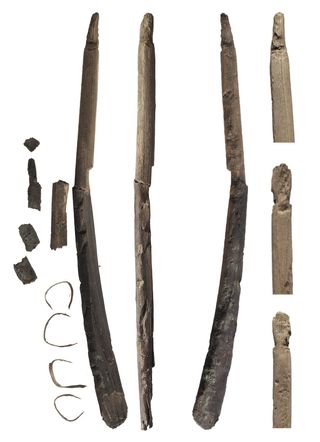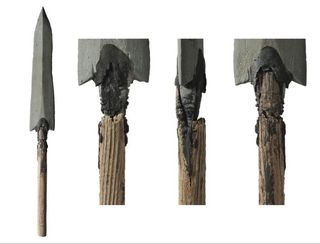Hiking the mountains

Researcher Martin Callanan recently unearthed a Neolithic bow and arrows from a melting snow patch high in the mountains of Norway.
Yearly hikes

Every year, Callanan and his colleagues will hike into the mountains in Oppdal County, Norway, tracking changes in the snow melt and looking for artifacts revealed by the snow.
Climate change find

In 2010 and 2011, the team noticed that a snow patch that had been there for centuries had melted, revealing an ancient bow and arrows.
Bow fragments

The bow, made of elm, was about 3,800 years old. Callanan believes the bow was used to hunt reindeer.
Reindeer cooling

Though reindeer, like people, live in the valleys below the mountains, on hot summer days they go into the mountains, where the snow patches keep the shaggy creatures cool and the mountain air is free from pesky bugs. Their predictable habits must have made them easy prey for ancient hunters.
Ancient arrows

The oldest of the arrows was 5,400 years old. The bow and arrow design is strikingly similar to those found in other frigid locales, such as the Yukon. Though people from these two far-flung regions never met, they seemed to have separately developed similar adaptations.
Sign up for the Live Science daily newsletter now
Get the world’s most fascinating discoveries delivered straight to your inbox.

Tia is the managing editor and was previously a senior writer for Live Science. Her work has appeared in Scientific American, Wired.com and other outlets. She holds a master's degree in bioengineering from the University of Washington, a graduate certificate in science writing from UC Santa Cruz and a bachelor's degree in mechanical engineering from the University of Texas at Austin. Tia was part of a team at the Milwaukee Journal Sentinel that published the Empty Cradles series on preterm births, which won multiple awards, including the 2012 Casey Medal for Meritorious Journalism.
Most Popular

